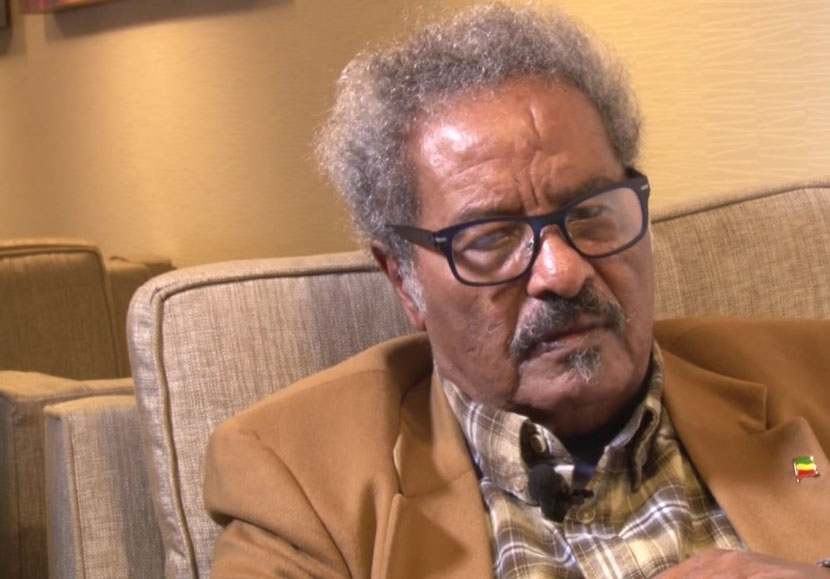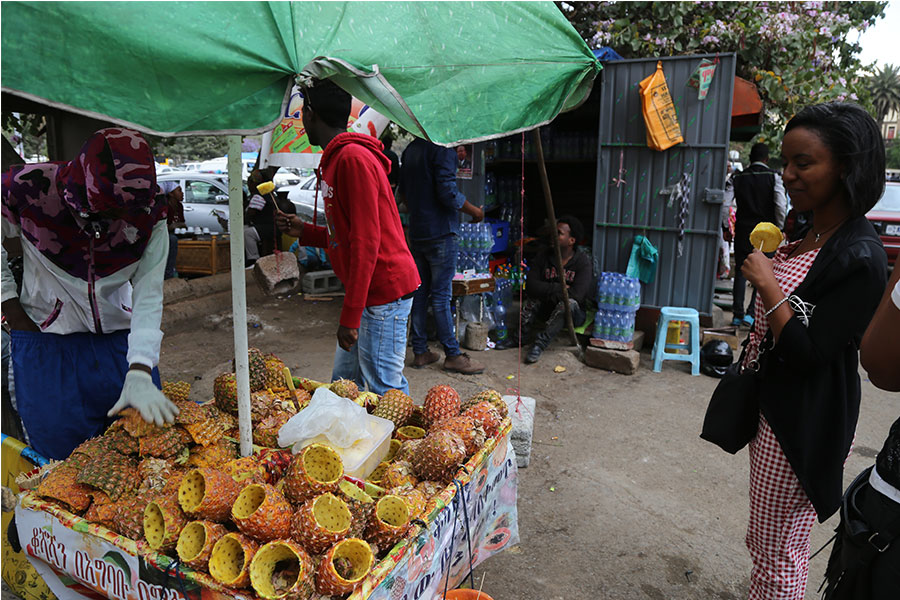
Verbatim | Nov 17,2018
Nov 19 , 2022
By Robel Mulat
The delisting of Ethiopia from America's preferential trade regime, a.k.a the African Growth and Opportunity Act (AGOA), undoubtedly sent shockwaves across industries. Thousands of young factory workers, mostly women, are disproportionately affected.
A year ago, the US government announced that it would suspend Ethiopia from AGOA, citing human rights violations during the civil war. Two weeks after the decision, major clothing brands such as PVH Corporate terminated their operations. While it was a significant setback for the country's ambitions to become an essential player in the global apparel industry, many young and rural migrants, who were not involved in the northern war, have faced job insecurity.
AGOA allows duty-free access to the US market, including ready-made garments. Exports under the trade regime generated 238 million dollars two years ago, claiming 45pc of the total exports to the US. The garment industry contributed almost 98pc of the share.
Even though accounting for the actual impact of AGOA on the overall economy is difficult, it is necessary to learn from the current debacle and design strategies to become a middle-income country.
What can affected parties learn from withdrawal rather than its immediate impact after one year?
It has at least three interconnected consequences.
The first important lesson is the need to reconsider the current industrialisation challenges for latecomers.
Ethiopia has emerged as one of the fastest-growing economies in Africa. However, structural transformation of the economy remains the central challenge. The country adopted the "Asian Tigers" industrialisation strategies of South Korea, Taiwan, and China. Export-intensive industrialisation has created jobs and transformed economies worldwide in recent decades. On the other hand, changes in manufacturing technology and the global market for manufactured goods may pose new internal and external challenges. A global economy significantly differs from the previous 'late industrialised' method.
As a late bloomer to industrial parks, Ethiopia could theoretically avoid the disadvantages of others, using innovation and technological advances to leapfrog further. Even though the current conditions of industrial parks are more complex than they used to be, the rise in global value chains and significant developments in technology markets increased levels of international competition. Industrial parks have contributed significantly to the development by creating employment and attracting foreign direct investments.
Some have experienced multi-faceted challenges, such as complications associated with administration, infrastructure, finance, skills development, and linkages with local economies. The conventional notion that latecomers often benefit from industrialisation does not hold water demonstrating how they have recently encountered various emerging problems.
The need to strive for alternative shifts in export destinations is a significant problem. Identifying alternative markets to fill the gap should be a critical mission. The current situation should serve as a wake-up call for policymakers to look beyond short-term fixes and find real solutions to diversify the manufacturing export destinations. Looking for another market in the east and Europe is important for ongoing and empirically based promotion.
Regional integration and strengthening should be a new strategy to respond to the Biden Administration's decision to delist Ethiopia.
Including the diaspora community in the business is another vital lesson that could be had. Recently, an advertisement was posted inviting domestic investors to enter the manufacturing industry sector. It is a step forward.
The Chinese diaspora has played an essential role in particular economic zones, bringing capital investment, technologies, and management skills to the sector. The initiative is ultimately helping to build domestic manufacturing capacity. The cheap labour and good infrastructure in special economic zones with various incentives provided an excellent opportunity for FDI to flow into China from the diaspora.
Inviting the Ethiopian diaspora to participate in the industrial parks would be more valuable than inviting local industrialists.
PUBLISHED ON
Nov 19,2022 [ VOL
23 , NO
1177]


Radar | May 18,2024

Commentaries | Apr 26,2019

Radar | May 13,2023

Radar | Mar 16,2019

My Opinion | Sep 18,2021

Photo Gallery | 169858 Views | May 06,2019

Photo Gallery | 160104 Views | Apr 26,2019

Photo Gallery | 149692 Views | Oct 06,2021

My Opinion | 136214 Views | Aug 14,2021





Dec 22 , 2024 . By TIZITA SHEWAFERAW
Charged with transforming colossal state-owned enterprises into modern and competitiv...

Aug 18 , 2024 . By AKSAH ITALO
Although predictable Yonas Zerihun's job in the ride-hailing service is not immune to...

Jul 28 , 2024 . By TIZITA SHEWAFERAW
Unhabitual, perhaps too many, Samuel Gebreyohannes, 38, used to occasionally enjoy a couple of beers at breakfast. However, he recently swit...

Jul 13 , 2024 . By AKSAH ITALO
Investors who rely on tractors, trucks, and field vehicles for commuting, transporting commodities, and f...

Oct 4 , 2025
Eyob Tekalegn (PhD) had been in the Governor's chair for only weeks when, on Septembe...

Sep 27 , 2025
Four years into an experiment with “shock therapy” in education, the national moo...

Sep 20 , 2025
Getachew Reda's return to the national stage was always going to stir attention. Once...

Sep 13 , 2025
At its launch in Nairobi two years ago, the Africa Climate Summit was billed as the f...

Oct 5 , 2025 . By NAHOM AYELE
In Meqelle, a name long associated with industrial grit and regional pride is undergo...

Oct 5 , 2025 . By BEZAWIT HULUAGER
The federal government is set to roll out a new "motor vehicle circulation tax" in th...

Oct 5 , 2025 . By NAHOM AYELE
The Bank of Abyssinia is wrestling with the loss of a prime plot of land once leased...

Oct 5 , 2025 . By BEZAWIT HULUAGER
The Customs Commission has introduced new tariffs on a wide range of imported goods i...